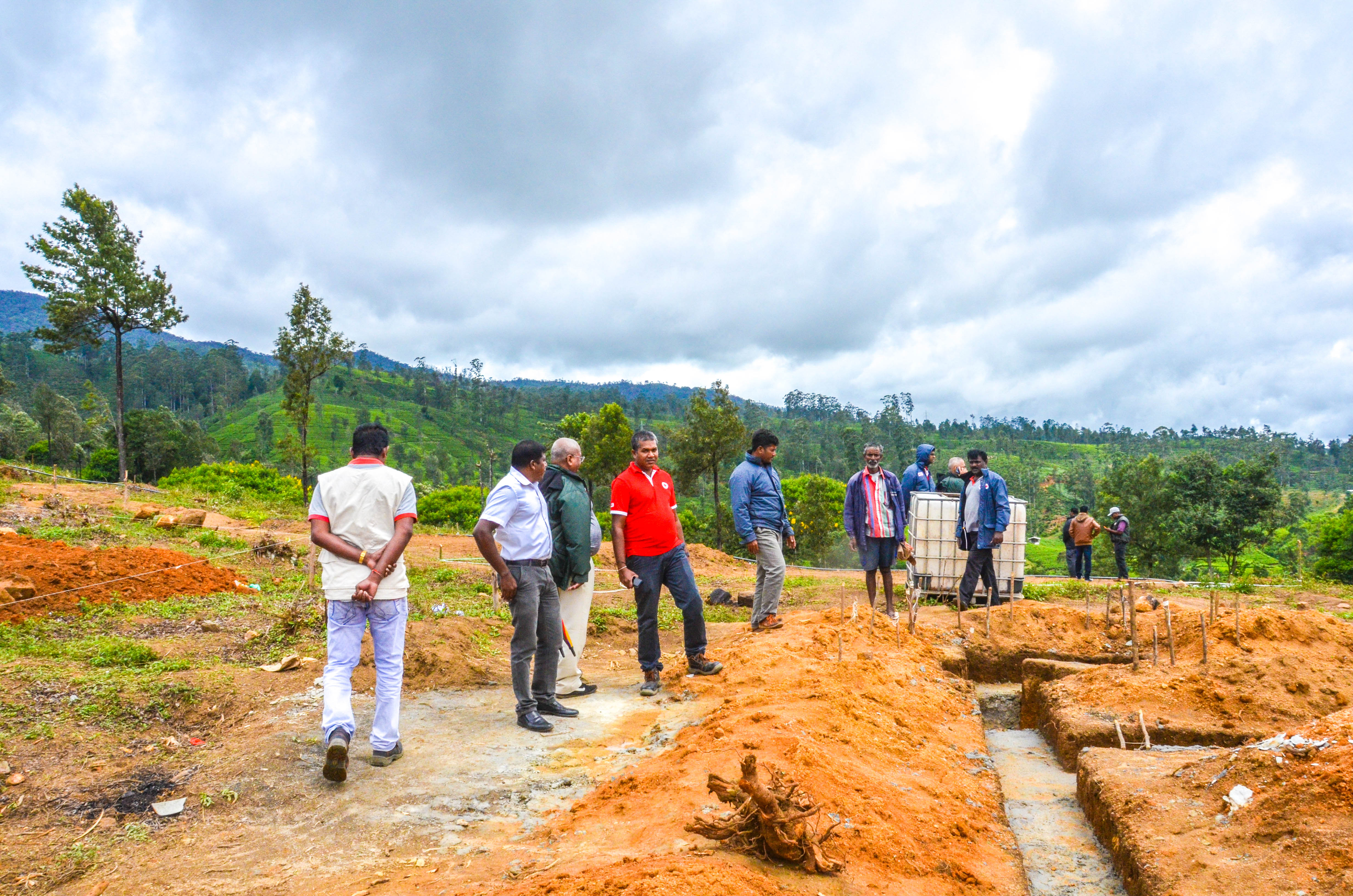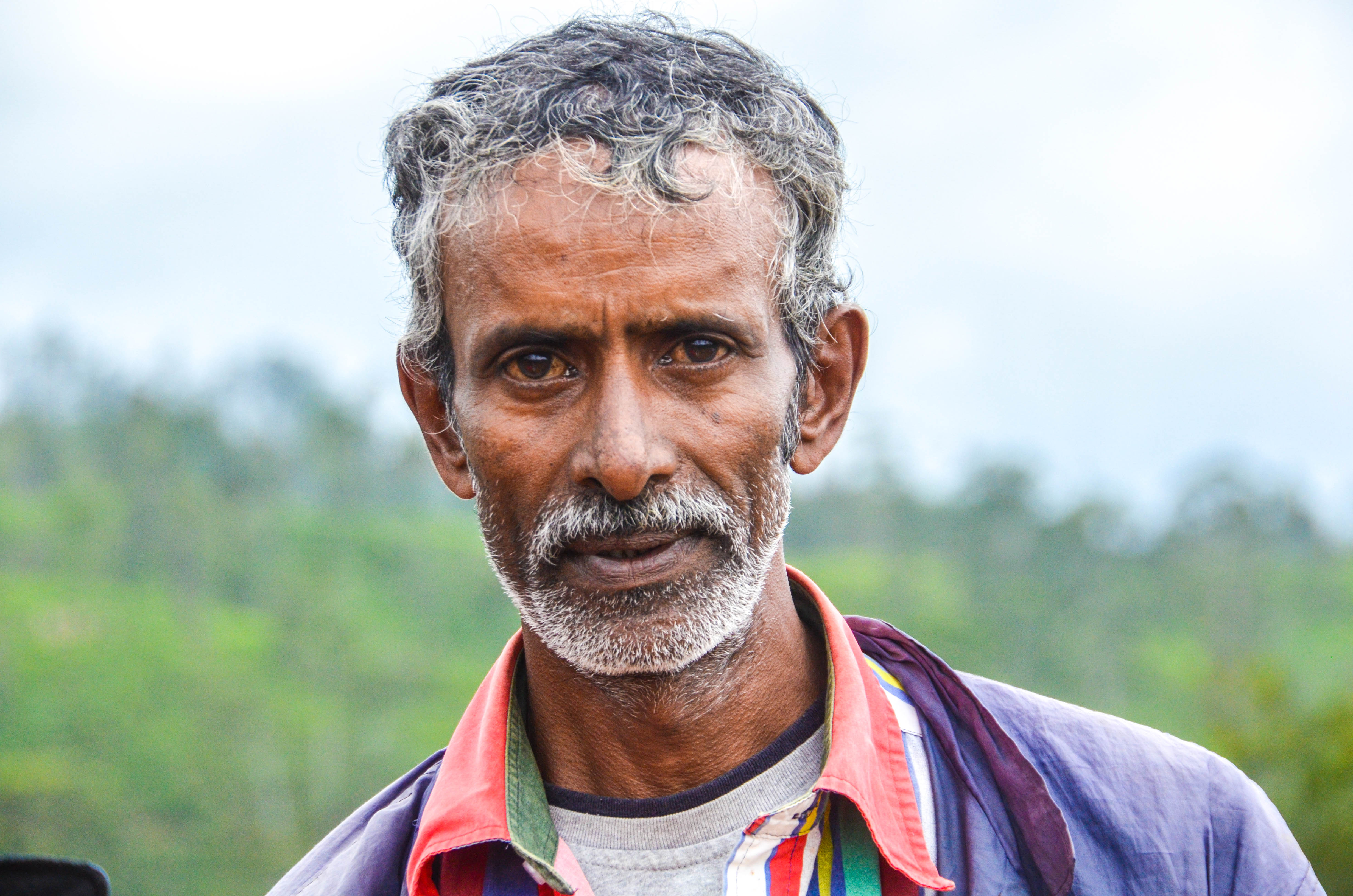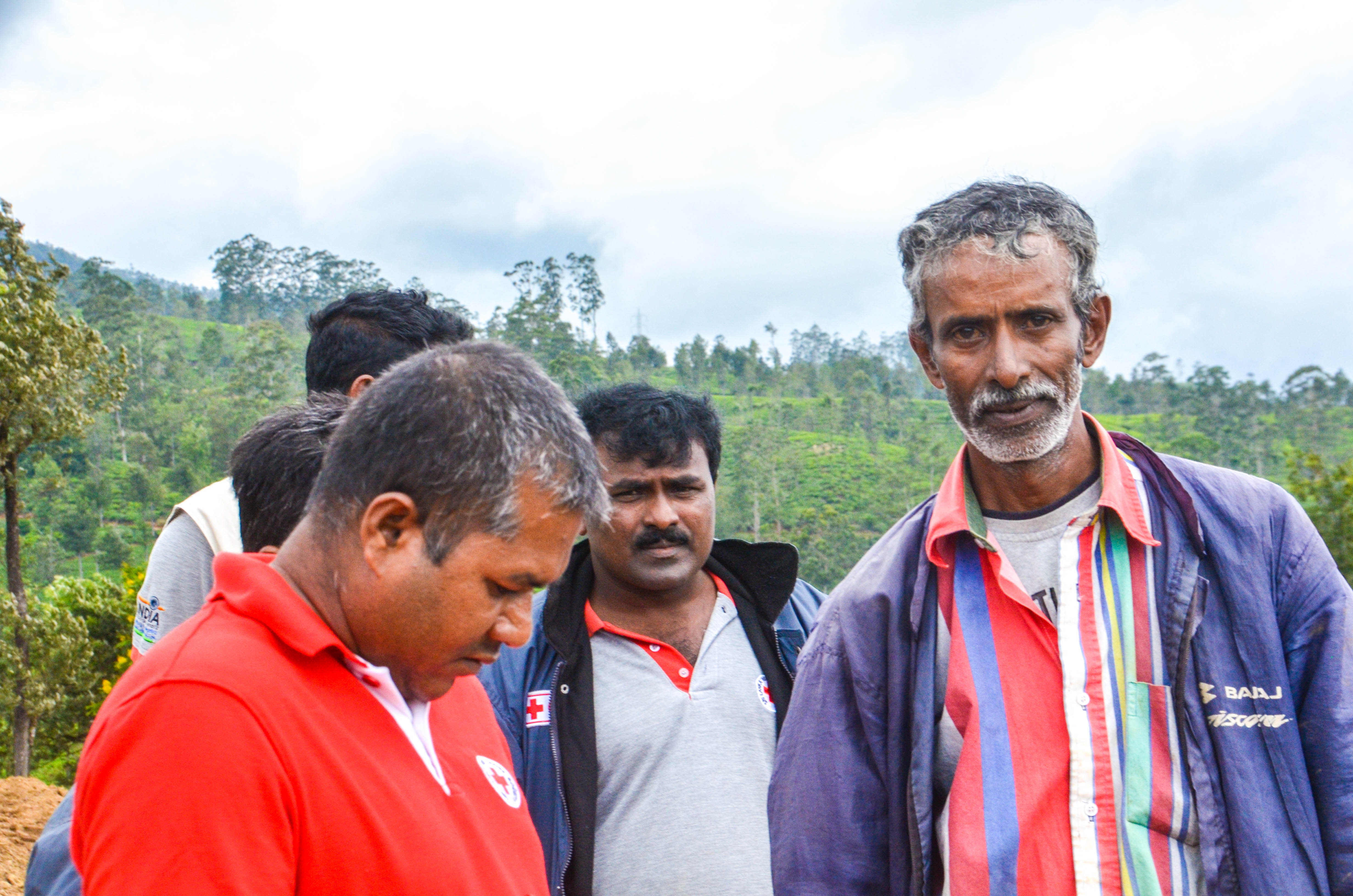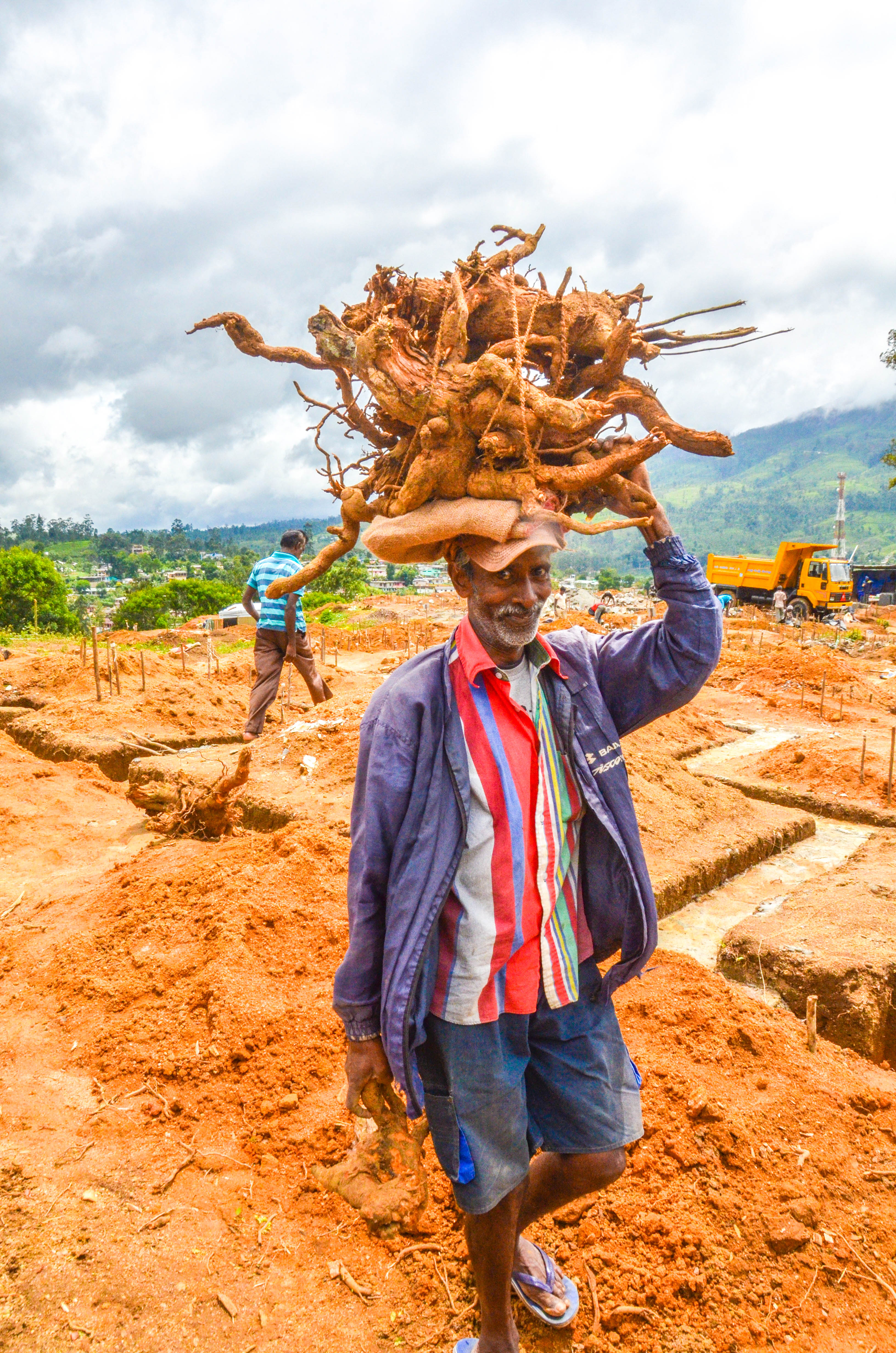Building a better home for a better life for the Estate communities in Sri Lanka
10/07/2017 – Nuwara-Eliya, Sri Lanka: Owning a house is all that Muniyandi thinks about these days. He dreams of having a house he could build with his own two hands, a house that he can someday pass on to his children and grandchildren.
“Things are better for me. Life has been hard. We are not wealthy people and have been going through hardship. Now, owning a house means the world to me,” said Muniyandi. For over 30 years, the 54-year-old father of two has been working as a laborer for the Bogowana tea Plantation in Bogawanthalawa, central Sri Lanka. His parents, who migrated from India to Sri Lanka during the British occupation, were also working as laborers in tea plantations.
These labourers and workers form a closed community, confining themselves to the plantations they are contracted with. Despite the plantations’ significant and active contribution to the Sri Lankan economy, the well-being of communities working and living in the estates remain a concern.
In 2016, after the successful completion of the Red Cross Post Conflict Recovery Programme in Northern Sri Lanka, which provided 21,000 affected families with financial and technical help to build new homes, the Sri Lanka Red Cross Society, in partnership with the International Federation of Red Cross and Red Crescent Societies (IFRC) and with funding from the Government of India, began to address one of the key issues in the plantation community – housing.
At the moment people like Muniyandi do not own their own home. They live in houses built by their employers over hundreds of years ago, with only the bare essentials provided to them. The living space is often small, cramped, and had to be shared with three or four other families.
“Our aim was to make sure they come out from this unbearable living condition and move to a house of their own, built by them with contributions by the community and pave the way to enjoy dignified and decent life in the society” says Nimal Silva, the Programme Manager of the Estate Housing Project of Sri Lanka Red Cross.
“This would help most of these families to be independent, thus having a quality life and socially recognized life that would in return help them be successful in life”
Owner Driven Housing
The project utilizes the same mechanism of owner-driven housing, which gives the communities the right to choose the design of a house of his or her own liking within the framework and standards set by the Red Cross. While the Government of India arranges financial assistance, the Red Cross provides technical support during the construction of these houses.
This happens in four stages where the complete grant of 950,000 rupees is given in four installments. The first stage is to lay the foundation, the next to construct walls, the third to complete the roof and door/windows, and the fourth to complete the house. The construction is undertaken by the beneficiary with the support from the community and others. The design and how the construction will occur lies with the beneficiary him/herself.
“I am not going to live in a house built by someone who has no idea or understanding of what my lifestyle is like,” said Muniyandi. “Thanks to the Red Cross and the Indian Government, I will live in a house that is of my own making, “
This project will aim to build 1600 houses by the mid of 2018 benefiting over 8000 people in the Bogawanthalawa area which is the current operating site of the Red Cross.
“We as the Red Cross will continue to guide these people to do their very best and in the end to ensure that they have a home of their own that they are proud to live in,” said Gerhard Tauscher the IFRC Programme Delegate in Sri Lanka. “This housing project is another example of the Red Cross commitment towards the most vulnerable communities across the world, where we ensure that they are given a chance to live a dignified life.”



